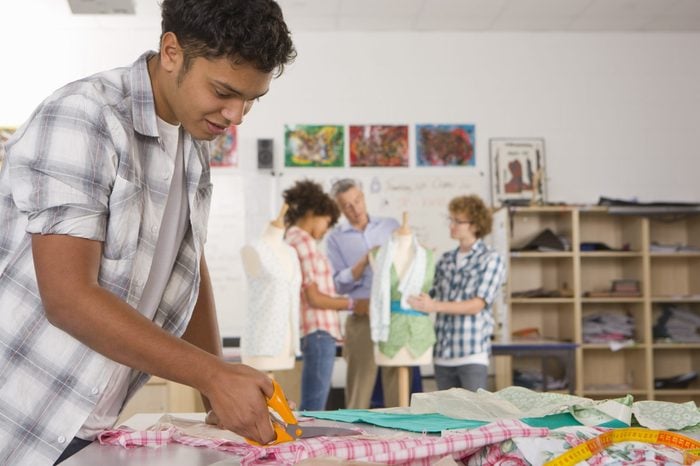
Home ec teaches valuable life skills
Math, science, history, and english are all important school subjects for success in the world and workplace. But home ec also teaches important skills that everyone still needs. Although some of these take less precedence in the classroom today, they are still things most people should and will need to learn or use. And many of them are life skills that everyone needs.

Basic cooking
Basic cooking skills are lacking in today’s world thanks to microwavable meals and the numerous grab-and-go options available everywhere from your local gas station to the corner store. On top of that, folks today are working longer and harder than ever before, so it’s no surprise that kitchen skills are lacking—after all, there’s only so many hours in a day. But knowing how to cook basic meals, like scrambled eggs, chicken, and veggies will make your life way easier. Ready to give it a shot? Here’s the secret to cooking perfect scrambled eggs.
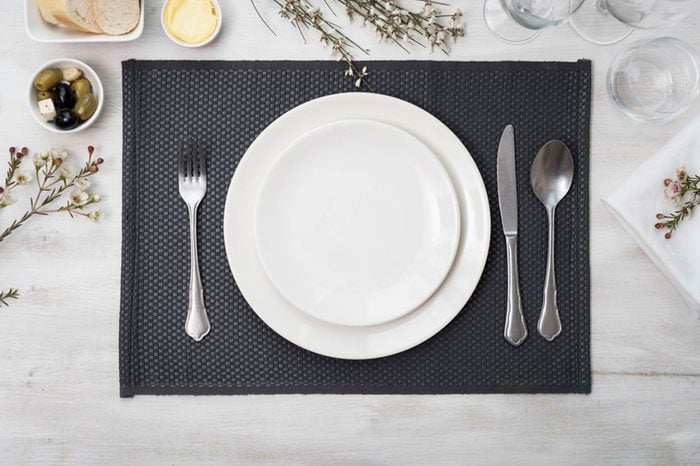
Dining etiquette
Do you know what side your glass goes on? What about which fork to use to eat a salad and which to use to eat meat? More importantly, why should you care? Well, you don’t want to look like a complete and total slob when you’re out to lunch with the CEO of your company. And don’t you want to impress your friends by throwing a fabulous dinner party? Basic dining etiquette like knowing how to set a table, which utensil to use for what food, and where to place your napkin when you go to the restroom can help you appear more gracious, cultured, and elegant. Basic table setting goes something like forks on the right, knives on the left (with the sharp side facing the plate), with the wine and or water glasses going above the knife. These 50 little etiquette tips will help you mind your manners.
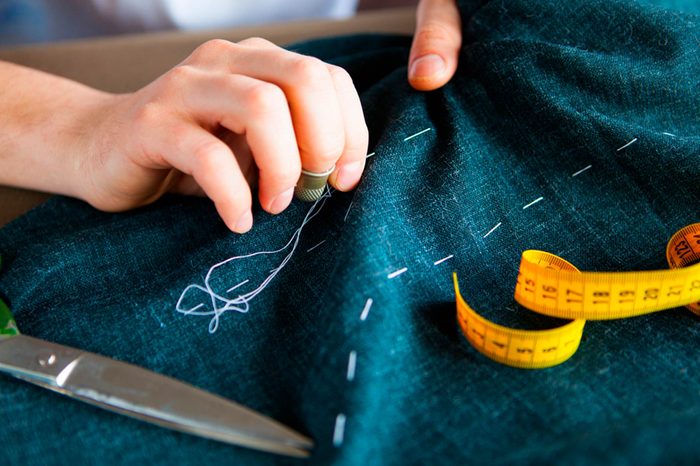
Sewing
Knowing how to sew a button and hem your pants or skirt will help you out tremendously should you ever find yourself in a clothing mishap and no tailor in site. Maybe you’re about to give a work presentation and your blouse button falls off, or you’re getting out of the car and your skirt rips at the hem (happens more than you’d think!). Being able to quickly add a stitch or button will take you from drab to fab. Best part? All you need is a needle and some thread and basic knowledge of sewing, like the difference between a running stitch and cross stitch. Hint: A running stitch is your basic forward up and down stitch used to hem clothes, while a cross stitch would be useful for sewing on buttons. There are plenty of easy ways to tailor your own clothes.

Ironing
There’s a lot more to ironing that just plugging in the cord and running over your clothes. For example, you should definitely use an ironing board if you want a crisp, crease-free shirt. And then when it comes to the actual act of ironing, making sure you use the proper temperature is crucial in maintaining the longevity of your clothes. Experts recommend starting from the cuff and moving towards the shoulder when ironing a shirt. Pants and skirts are a little trickier depending on the flare and flounce. If you don’t have an iron, note these ways to de-wrinkle your clothes without one.

Laundry
While laundry has gotten easier over the years thanks to the advancement of technology, aka washers and dryers, there’s still a lot more to laundry than just separating darks from lights. For instance, did you know that clothes should also be separated by fabrics and colors? And white towels shouldn’t be washed with your white t-shirts due to pilling? When it comes to loading the washer and dry, while it’s easy to jam everything in and shut the door real quick, it’s best not to over stuff. This will only either lead to your clothes being washed improperly (and no one wants to pull crusty underwear out of the washer) or having to re-run the dryer five times to completely dry everything. Find out all the other laundry mistakes you need to avoid.
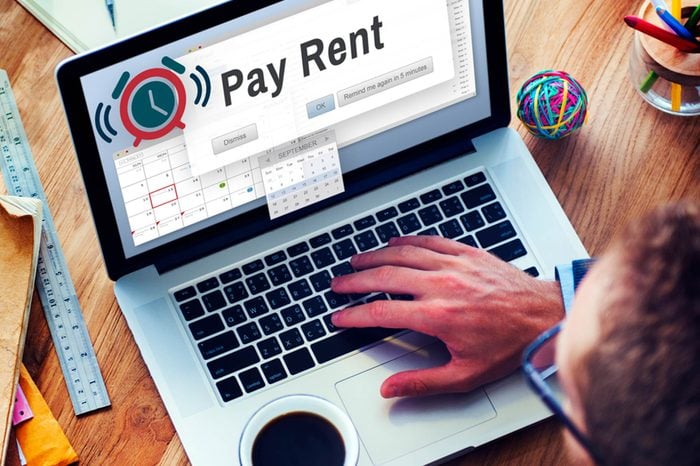
Paying rent and bills
Knowing how to pay rent and bills like cable, electricity, and heat and water, before getting your own place will save you the headache of trying to figure it all out when the bills come due. P.S. Paying bills late often results in a hefty late fee. So first things first, head to the bank and set up a savings and checking account. “Our national economic system is set up intentionally for people to earn money to feed back into the economy by purchasing homes, food, clothing, etc,” says MaryJane McGuire, family and consumer science educator at Brigham Young University. “Families need to keep track of needs and wants according to their environment so that they can survive in our society and hopefully be happy and fulfilled.” While you’re at it, learn how to start saving money, too.

Managing a bank account
Opening both a checking and a saving accounts is a good place to start when trying to get your financial life in order. When deciding which institution to bank with, it’s important to consider factors like locations, number of branches, and any special incentives like no-fee ATM withdraws or unlimited monthly transfers. Some banks will even offer new customers an extra $100 to $200 when they open up a new account. It’s a good to put some of your paycheck into your savings account each month. Consider talking to a financial expert or adviser who can answer all your questions and ease your financial anxiety. Don’t worry though everyone is bound to make a mistake or two, even financial experts make mistakes with their finances, too.

Automobile maintenance
A car is basically a necessity in most cities around the United States because public transportation isn’t the greatest unless you live in a large city like NYC or Washington DC, so knowing basic automobile maintenance like how to change a tire and check your oil levels will save you both time and money. Plus, should you ever find yourself stranded on the side of the road in the middle over nowhere with a flat tire, these skills will come in handy. Changing a flat tire is relatively simple and with practice you’ll be a pro in no time. The AAA recommends keeping a flashlight, lug wrench, jack, wheel wedges, and of course a spare tire, which are all needed for the change. You can even buy a pre-prepped flat tire repair kit from most auto stores if you prefer an all-in-one option. Here are other everyday emergencies you need to be prepared for.

Loans and credit
Do you know how to take out a loan? What about how to find your credit score and even get a credit card? While loans and credit may seem like foreign concepts necessary only for financial advisers to deal with, it’s something that you, as a borrower, should know how to get and/or manage and balance. It’s easy to overspend and find yourself in debt with loans and credit cards because eventually you’ll have to pay back your lenders. So what’s the difference between a loan and credit? A lot. According to NerdWallet, “credit cards are ideal for short-term expenses that you can pay off in a month, while personal loans are best used for long-term expenses, financing a big purchase, or consolidating multiple debts.” Thus, credit cards are good for groceries, shopping, smaller purchases, which is why you find everywhere from department stores to supermarkets offering their own credit card. Found yourself in a debt after a big purchase? Get back in good financial shape by following these 11 way to improve your credit score.

Family relationship skills
It’s not always easy being a good friend, daughter, mom, sister, etc. all the time, especially when you’re under pressure or upset, which is why we all can use a little extra family and friend relationship advice. It seems like in today’s day and age, most relationships are through some type of technology, whether it be a text, phone call, FaceTime, etc., but nothing truly compares to face-to-face real human contact. So making time for loved ones would be the first step in deepening a relationship. “Relationship skills like communication, cooperation, working in groups, patience, and compromising or conflict resolution are some of the skills that families need in order to survive,” says McGuire. “Our society and employers are begging for these interpersonal relationship skills.” Communication is key when it comes to family relationships skills, but communicating effectively isn’t as simple as it seems. Here’s how to be BFFs with your siblings as an adult.

Social etiquette
There’s a reason your parents constantly reminded you to say please and thank you growing up: being polite matters. You’re much more likely to make friends and excel in both your personal and professional lives by being a polite person. But what exactly does being polite mean? Well for starters, like mom and dad always said, minding your Ps and Qs, holding the door open for the person behind you, and asking someone how they’re doing, are all simple acts that show you’re polite. You can even go the extra mile, and offer to help clean a friend’s kitchen after a dinner party or throw your BFF and surprise party. These are the 17 forgotten manners every parent should teach their child.
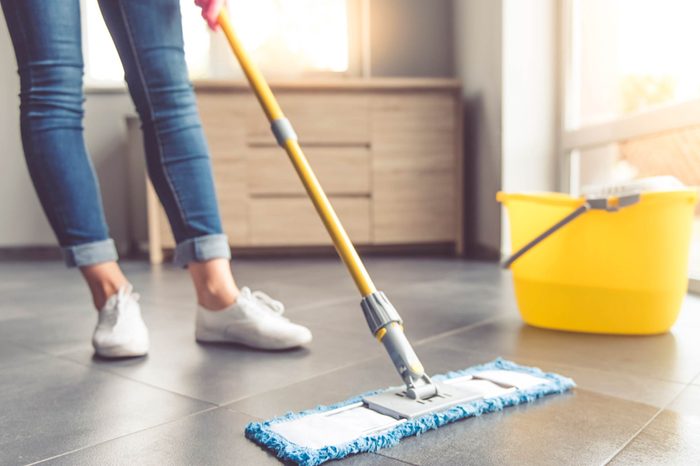
Basic household cleaning
There are very few people who actually enjoy cleaning, but unless you plan on living in complete filth, it’s one of those things that has to get done eventually. Putting off cleaning will only make it worse, so staying on top of it is important. But what do you use to clean your kitchen sink? And how do you get rid of dirt in the bathroom? Knowing basic cleaning skills like these will help you clean more efficiently and most likely speed up your overall cleaning team, and who doesn’t want that? Make sure you’re cleaning all areas of your home, not just the common areas like kitchens and bathrooms.